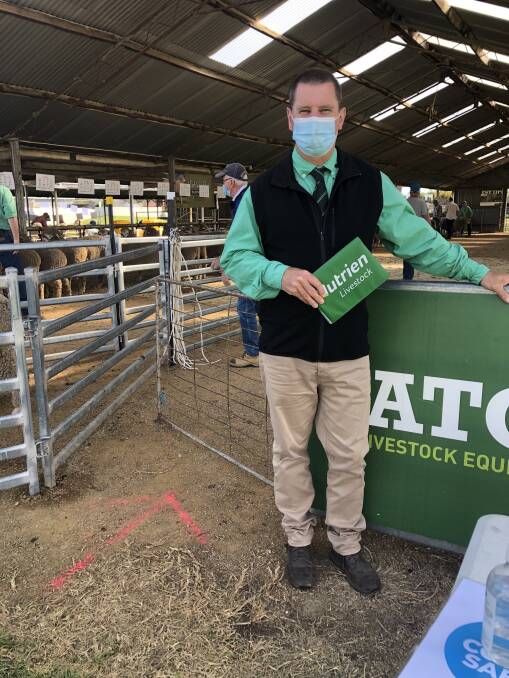
It's a brave new world that we now live in.
Subscribe now for unlimited access to all our agricultural news
across the nation
or signup to continue reading
Brave especially for those that are required to move from town to town and region to region selling livestock at the same time trying to ward off the threat of COVID infections.
Livestock auctioneers once had a world of travelling open and endless landscapes, steak sandwiches and often a day finished off with social drinks with clients.
These days it's about finding a fuel stop off the main highway, eating from a packed lunch and avoiding over crowded motels.
COVID and its new Delta strain is still a huge challenge in regional Australia, in particular both NSW and Victoria.
Throughout the eastern states and regional areas, vast numbers have been placed in lockdown; many are self-isolating and daily outside activities, such as livestock auctions, can only take place with the appropriate amount of social distancing, mask wearing and vigilant hygiene practices.
We have all had to become accustomed to a whole new way of living and working.
State sheep auctioneer and classer Rick Power from Nutrien Ag Solutions said the new way of living has impacted the way he goes off to work and gets through his business, every day.
During the peek of the spring ram selling season he is out the door by 6.30am with an estimated arrival back home of 7pm or later.
His average kilometres per week are 2500.
And although Mr Power is double vaccinated, he said there is no reward for the efforts he is taking to avoid the worst possible outcomes for everyone involved.
"It is a high-risk job. I am taking every precaution to avoid ending up with COVID or becoming a close contact with COVID," Mr Power said.
"I don't go to fuel centres on the major highways; I look for ones off the main drag. I am carrying jerrycans with me and carrying my own food and coffee.
"I am living on muesli bars and mandarines. I am doing everything I can to avoid it.
"But I am frightened I am going to go to one of these ram sales and someone is going to come up close contact and I am done.
"Yet I have 120 per cent done everything right."
RELATED READING:
There is some light at the end of the tunnel, however, with the recent relaxation of some of the lockdown areas, the clear aim of which is to start the process of getting us back to some sort of normality and getting the economy moving again.
At auctions there are half the crowd numbers. It's different to what we are used to. There is no noise, no kids, no partners coming out for the day
- Rick Power, Nutrien Ag Solutions
But anxiety on many levels remains.
"Take a walk in the shoes of a state auctioneer and see how you feel," Mr Power said,
"I leave, and when I can't return safely to my home I go to a motel and lock myself behind the door.
"And I eat a frozen microwave dinner because I just can't risk it."
But he said around the state, property owners are doing the job "exceptionally well".
"There are some good people out there, they are doing the right thing - they spread out nicely and did the job so well," he said.
"At auctions there are half the crowd numbers. It's different to what we are used to. There is no noise, no kids, no partners coming out for the day."
Earlier in the season agents put their heads together and a contingency plan was put in place.
It was decided stud stock specialists wouldn't attend livestock sales as a team.
"The reason for this is if I get a close contact, or anyone else for that matter, we have two or three auctioneers behind the scenes waiting to get the call up," Mr Power said.
"We have told them, "be careful, look after yourselves, you are on standby".
"We are ready for it, that is how worried we are."
But Mr Power admits the industry will be lucky to get through the ram selling season without a hit from COVID.
What is certain is that COVID has had, and will continue to have, a fundamental impact on the way we work and conduct business in regional Australia.
Start the day with all the big news in agriculture! Sign up below to receive our daily Farmonline newsletter.


